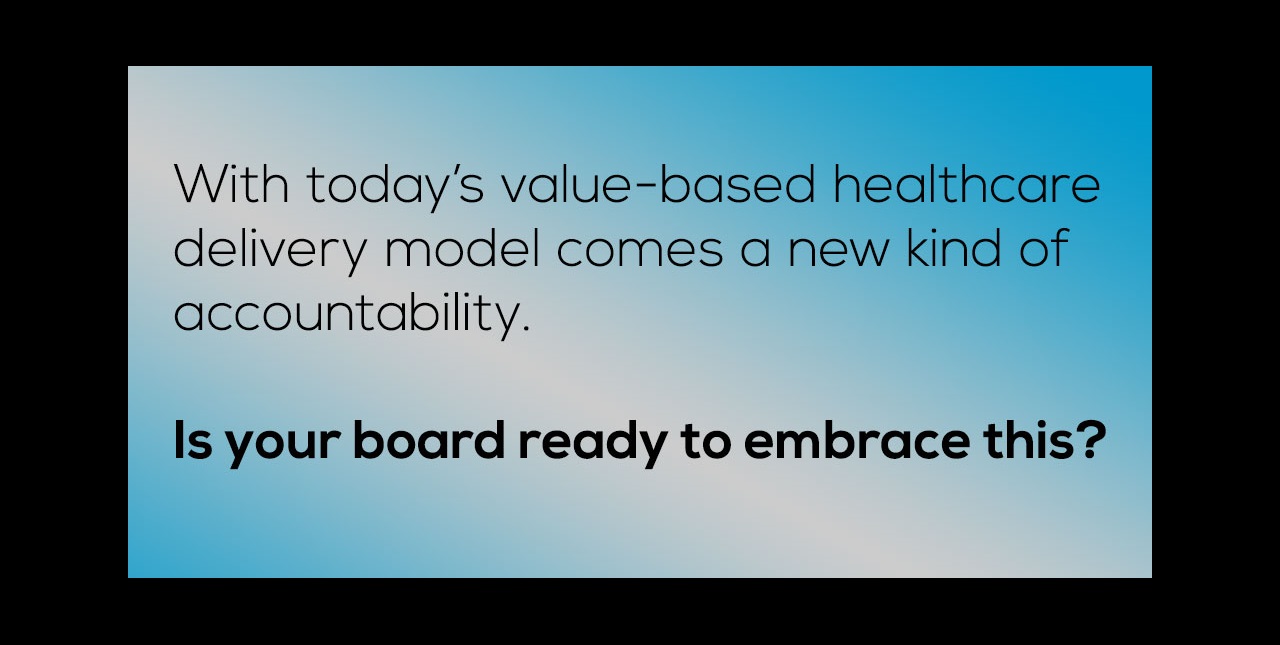
In 2011, healthcare consultant and futurist James E. Orlikoff was quoted as saying, “We have to move away from fee-for-service. The focus will now be on value, efficiency and safety. Put another way—it’s about the patient.” Orlikoff’s prediction then was that the Affordable Care Act would be the catalyst to drive the US healthcare system from volume to value. Here we are, eight years later, and he was spot on.
But with this ongoing evolution to a patient-centric healthcare system comes a new kind of accountability for healthcare organizations—and their boards. On the one hand, a board is accountable for governing financial stability. On the other hand, today’s boards will also be accountable for ensuring quality healthcare is delivered through a value-based model. How, then, does an organization evolve its board to productively and effectively govern for today’s healthcare environment?
According to an article by Hospital & Health Networks, Orlikoff encouraged leaders attending the American Hospital Association’s 2017 Rural Health Care Conference to “think beyond themselves,” and put new best practices in place for boards. He stated, “We’re not doing competency-based board selection enough in the field today…if you want an expert on your board, you must recruit them. Literacy is a continuing governance-education issue.”
Though Orlikoff was presenting to rural healthcare leaders, the need for new best practices is true for a board of any size organization. A month following the above presentation, Orlikoff spoke at the 2017 TCA Clinician Trustee CEO Conference. In his presentation, “Wither The Soul of Trusteeship? Changes, Challenges, and Strategies for Effective Governance in the New Environment,” he recommended the following five key principles for all boards:
- Build a board based on competency; expertise vs. literacy
- Employ board member performance evaluations
- Recruit outside members
- Develop a clear leadership focus: “The purpose of governance is to LEAD, not to represent constituencies and stakeholders.”
- Plan for board diversity, especially age diversity
It goes without saying that a board will always be accountable for the financial strength of the organization it serves. However, employing new best practices will help ensure members are well-equipped to sustain that financial strength with value-based competencies and strategies.
James E. Orlikoff (Jamie) is president of Orlikoff & Associates Inc., a Chicago-based consulting firm specializing in healthcare governance and leadership, strategy, quality, patient safety and organizational development.
